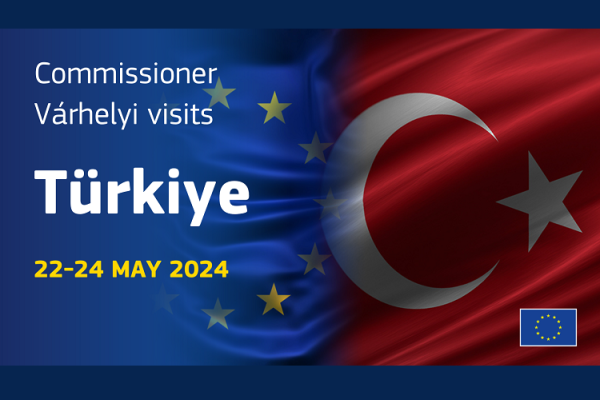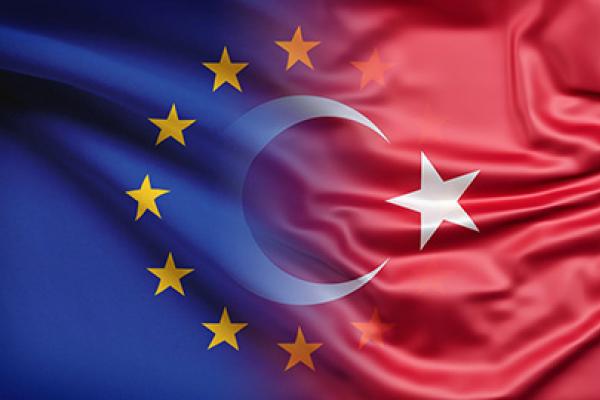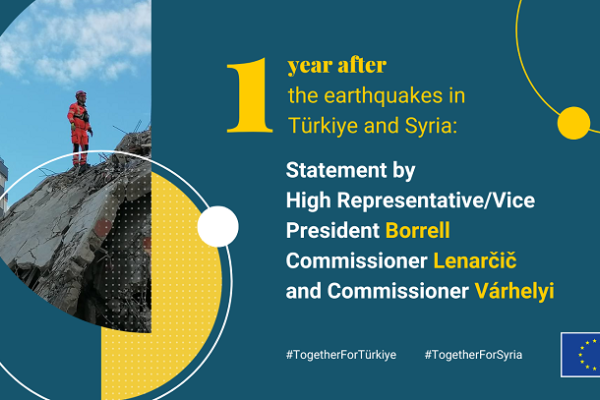Membership status
Candidate country
EU – Türkiye Relations
Türkiye is a key strategic partner of the EU on issues such as climate, migration, security, counter-terrorism and the economy.
In 1987, Türkiye applied to join what was then the European Economic Community, and in 1999 it was declared eligible to join the EU.
Türkiye's involvement with European integration dates back to 1959 and includes the Ankara Association Agreement (1963) for the progressive establishment of a Customs Union (ultimately set up in 1995).
Accession negotiations
started in 2005, but until Türkiye agrees to apply the
Additional Protocol
of the Ankara Association Agreement to Cyprus, eight negotiation chapters will not be opened and no chapter will be provisionally closed.
In 2018, due to continuing backsliding in reforms in the key areas of the enlargement strategy, in particular in the functioning of the democratic system, respect for fundamental rights and independence of the judiciary, the Council decided that accession negotiations were at a standstill.
A visa liberalisation dialogue was launched in 2013. For the fulfilment of the requirements of its visa liberalisation roadmap several outstanding benchmarks remain. Türkiye’s economy is facing several challenges, such as high unemployment, depreciation of its currency and record-high inflation. Strong economic volatility has undermined the business environment and overreliance on external financing has created vulnerabilities.
Türkiye hosts one of the largest refugee populations in the world. As of May 2024, there were 3.1 million Syrian refugees under temporary protection and another 78 000 Syrians with residence permit. Furthermore, the increasing political instability across its eastern border has brought around 300 000 asylum-seekers and refugees from other countries including Iraq, Afghanistan, Iran and Somalia to Türkiye. Overall, Türkiye has already spent significant financial resources on addressing this crisis. The EU and Türkiye confirmed their shared commitment to end irregular migration from Türkiye to the EU, to break the business model of smugglers and offer migrants an alternative to putting their lives at risk in their
joint statement of 18 March 2016
.
The establishment of the
EU Facility for Refugees in Turkey
was the answer to the EU Member States’ call for significant funding to support refugees in the country, and coordinates the mobilisation of €6 billion, in two tranches. The Facility’s priority areas are education, health, protection, basic needs, socio-economic support and municipal infrastructure. The full operational budget of the Facility was committed in November 2019.
In 2020, continuity of support was ensured through additional humanitarian funding amounting to €535 million, which extended two flagship programmes launched under the Facility.
Further to the European Council conclusions of June 2021 the EU allocated €3 billion to refugees in Türkiye for 2021-2023. This additional funding should ensure the continuation of key Facility interventions in the priority areas of health, education, basic needs and livelihoods, as well as migration management.
Türkiye is eligible for EU financial support through the Instrument for Pre-accession Assistance (
IPA III 2021-2027
) and also from the
European Fund for Sustainable Development Plus (EFSD+)
. To support public and private investments in the priority areas of the EFSD+ (Green Deal, Global Gateways and Decent Jobs), the Turkey Investment Platform was established in 2022.


